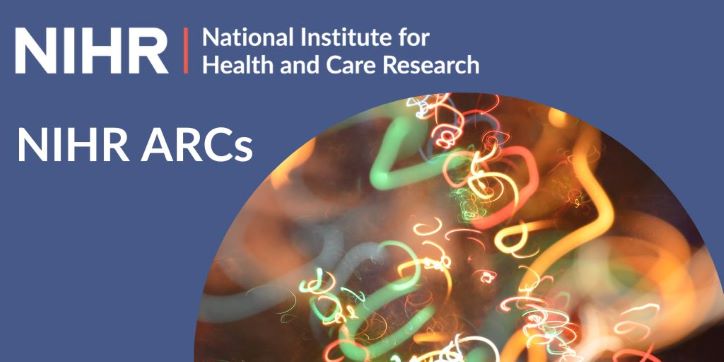
Dr Lin Lin Ginzberg, national communications manager across the 15 NIHR ARCs explains what the ARCs can offer mental health researchers and professionals who are interested in research.
ARC stands for Applied Research Collaboration and there are 15 of them across England. They are part of the National Institute for Health and Care Research (NIHR). ARCs cover all areas of the country and are local partnerships between NHS providers, universities, charities, local authorities, Academic Health Science Networks (AHSNs) and other organisations.
ARCs focus on applied research, which is about answering the immediate questions facing the health and care system. They are about generating actionable evidence and helping translate it into practice. Each ARC offers bespoke research and evaluation expertise working with their local health and care system, from healthcare professionals and members of the public, hospitals to community charities, and public health to GP surgeries.
Do ARCs support mental health research?
Yes! ARCs have different focus areas (including and beyond mental health) but thanks to the additional funding for mental health research in 2022, almost all ARCs have some focus on mental health research. You can find the list of focus areas here.
What can they offer people wanting to do mental health research?
Each ARC offers different kinds of support, from training, PhDs and fellowships to collaboration on applied mental health research studies. If you are thinking about an applied mental health research project, you could approach your local ARC.
There are many examples of career development opportunities with the ARCs, including the research internships and career development fellowships that ARC North Thames offered in December 2022. The research internships, for mental health professionals with little or no prior experience in research, fund time out from your current role to join a research team on an active project part-time for six months. Further NIHR ARC North Thames internships will be advertised in spring 2023 so look out for them! Another ARC, NIHR ARC Kent, Surrey and Sussex, has funded four individuals, developing research careers, who work with children and young people’s services in the region. Next year, NIHR ARC East of England will be launching another round of their mental health fellowship scheme. NIHR ARC South West Peninsula has launched the Peninsula Mental Health Research Initiative to help tackle the existing gap between local needs and mental health research activity. Opportunities like these will be advertised as and when they arise via the @NIHRARCs Twitter and NIHR ARCs national newsletter (see below for more on how to stay up to date with ARCs and how to find and get in touch with your local ARC).
ARCs often host patient and public involvement groups so they may be able to put you in touch with experienced public contributors with relevant lived experience. They also offer training opportunities in research methods, for example NIHR ARC West’s training programme offers basic statistics and data interpretation and introduction to qualitative evaluation courses.
What’s the difference between an ARC and an AHSN?
Academic Health Science Networks (AHSNs) are funded by NHS England and cover the same geographical regions as ARCs. Like ARCs, AHSNs bring together different organisations, especially the NHS and industry innovators. However, AHSNs are specifically focused on the adoption and spread of innovations, while NIHR ARCs are about conducting applied research. As an example, an ARC might evaluate the cost effectiveness of an AHSN’s roll-out of an intervention.
If you have an innovation that you want to bring into practice and spread across the NHS, you want your local AHSN. However, if you are interested in applied research and academic evaluation, then ARCs are more relevant.
How can I get in touch with my local ARC and find out about opportunities?
Each of the 15 NIHR ARCs have their own website, which are listed on the main NIHR website. Other great ways to make sure you don’t miss any ARC opportunities are:
- Sign up to the ARCs newsletter to keep up-to-date on ARCs opportunities, events and projects happening across the country. Link: http://tinyurl.com/ARCsnewsletter
- Follow the NIHR ARCs on Twitter @NIHRARCs
- Find out more about how your work can benefit from the fast-track implementation and tailored research and evaluation expertise available from the 15 ARCs across the country by finding and contacting your local ARC to see what support is available.
